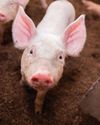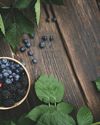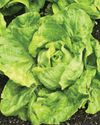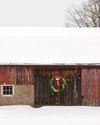
Consuming too many highly processed foods (such as white bread) has been blamed for an increased incidence of diabetes, heart disease, stroke and cancers. Conversely, unrefined foods have been documented as being beneficial for our health. Knowing this, we set out to make a great, homemade, 100% whole-wheat bread.
We quickly learned that can be tricky. If you’re not careful, the result is a dense, unappealing brick. But when done correctly, you get light, deliciously nutty, whole-wheat bread that’s good for you! Read on to learn how to produce a wonderful loaf every time.
THE INGREDIENTS
Because the ingredients for bread are so basic, everything used should be fresh and of the highest quality. The following components are what you’ll need to create terrific bread.
WHEAT is the most important ingredient, of course. For 100% whole-wheat bread, wheat with high gluten and protein (at least 14%) content is necessary. Hard red or white (spring or winter) wheat typically has sufficient gluten and protein content. (See “Wheat Berries” on page 51 for sources.) For comparison, all-purpose, whole-wheat flour has about 12% protein while pastry flour has about 7%.
Once you’ve located the right wheat, it’s critical that it’s fresh. Whole-grain wheat berries can be stored almost indefinitely at room temperature, but as soon as you grind them into flour, they quickly go rancid. Whole-wheat flour (with no added preservatives) will only keep for about a month at room temperature. As a result, it can be difficult to get from a store.
This story is from the {{IssueName}} edition of {{MagazineName}}.
Start your 7-day Magzter GOLD free trial to access thousands of curated premium stories, and 9,000+ magazines and newspapers.
Already a subscriber ? Sign In
This story is from the {{IssueName}} edition of {{MagazineName}}.
Start your 7-day Magzter GOLD free trial to access thousands of curated premium stories, and 9,000+ magazines and newspapers.
Already a subscriber? Sign In

The RISE of Opportunist WEEDS
Be prepared to see increasing changes in weeds we fight, such as poison hemlock and poison ivy, and in the crops we grow.

LIVESTOCK Health
Prepare yourself for how to spot symptoms of illness in your farm animals so that you can get them help before it's too late.

CUT FLOWER Farming
If you're considering growing flowers for sale, brush up on these five key things to know before diving in.

WINTER Survival
Keep your land, animals and yourself in good shape this winter with this helpful advice.

COVERAGE CONCERNS
Avoid common insurance mistakes for rural and hobby farm businesses.

FARMER'S GUIDE Berries
Set the stage for tasty strawberries, blueberries and brambles with these soil-boosting garden tips.

Preconditioning CALVES
Follow our step-by-step guide to get more money for your calves.

Soil Conservation
Often, outside of having a specific problem that needs to be addressed, soil conservation isn't something every farmer readily thinks about. Yet conserving the soil should be at or near the top of every farmer owner or manager's list of concerns because absent the prevention of soil erosion, we have the opportunity for another dust bowl.

Year-Round Lettuce & Salad Mixes
It's easy to think of salad greens as just a spring- or fall-garden crop, but it's possible to enjoy freshly harvested lettuces, mustards and more from your own garden year-round.

Barn Improvements
Days are never long enough for a farmer. From dawn to well into the night, tasks arise that often require immediate action. Having to search for tools or equipment is an enormous time waster and incredibly frustrating when you can't find what you need, especially when you know you have it.